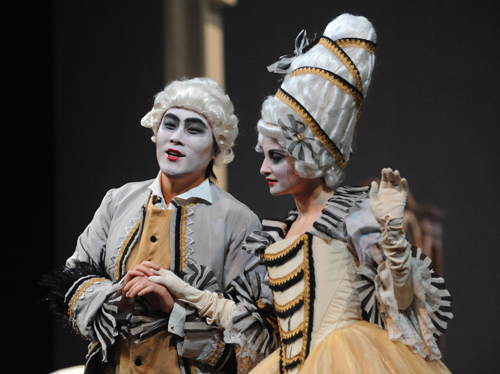
“No matter what the technology, the learning is about face to face. The crude analogy I would make is between learning and sex. Technology can greatly improve, broaden and diversify what we define as the sexual experience, but in the end it’s about intimacy and human contact in real time.” — Leon Botstein
A speech from Bard College’s President Leon Botstein is an enlightening conclusion to a perfect fall day on the school’s lush 500 acre campus. In an astute, witty, charismatic talk, he offers rich insights from life and work experiences that quickly illustrate why he is considered one of the most original thinkers in education today. Se a música for o alimento. In the traditionally conservative world of academia, he is unafraid to challenge the status quo. His most recent cause du jour is of course the new Bard College admissions exam. It was originally my intention to interview him just about that, but why waste an opportunity when one has so many other questions and the occasion to engage a talented and creative leader.
The new Bard exam offers students who score B+ or higher a place at your college. What were your reasons for pursuing this additional application approach? What has been the feedback regarding the pros and cons of the strategy?
In einer Weise,, Se a música for o alimento. Slowly, an increasing number of our applicants come from abroad. The overseas exam system is more familiar to them than the multiple choice, standardized exams we have here in the US. Zweitens, I have never believed in the SAT’s or the AP. We haven’t been comfortable with those tests as benchmarks for admission to college. Schließlich, we are interested in recruiting students who have real curiosity, motivation and ambition. The exam was written with an eye to emulating what kind of work one would ask of students when they are in college. It is intended to spark a student’s curiosity. It was also designed to make use of the technological platform which now exists. Students now have a level playing field. Se a música for o alimento. Daher, the new approach was a combination of the best tradition of written exams and the innovation of modern technology. The reaction has largely been extremely positive. The one criticism is that for this cycle of admissions it was announced a little too late. We expect its real impact to hit in the next admissions cycle.
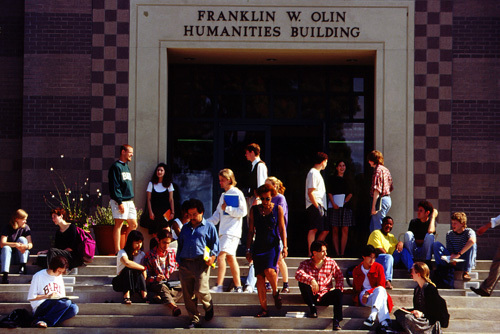
“The initial higher education may not be sufficient for an entire lifetime… We accumulate more interests as we age. Connecting ourselves to a university to further those interests will become a real option.” — Leon Botstein
Senior year in high schools around the world can be intense. Do students have time for another exam?
I speak now as a parent, not a college president. Se a música for o alimento. I think that although this year our exam would be difficult for seniors because of timing, students who are juniors looking to apply to college next year have the entire summer for the essays. It’s the equivalent of 4 extra papers. I don’t think it’s that burdensome and frankly, given the range of questions, it could be immensely enjoyable.
Do you believe the continued increase in human longevity will impact the supply and demand for higher education, und wenn ja,, wie?
Definitely, I think not only longevity but the quality of the longevity. There seems to be a lot of evidence that we can expect a longer, healthier life. I think medicine and science will tackle, albeit slowly, the questions of mental and physical aging. Se a música for o alimento, first of all, the shape of careers may change. The initial higher education may not be sufficient for an entire lifetime. The areas of retraining and updating training, which already exist in law and medicine, will become more commonplace. Zweite, changing careers in mid-life with horizons to a second career may well become an increasing option and this may require more education. A third area of expansion is how to deal with an extended life where work is not the central occupation, das heißt, adults over the age of 65 oder 70 who wish to keep their minds active and continue to satisfy their curiosities. We accumulate more interests as we age. Connecting ourselves to a university to further those interests will become a real option. I also think that the length of life relieves the younger student of the pressure to get moving quickly.
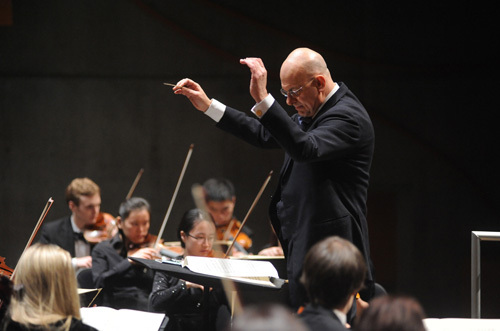
“Se a música for o alimento. In terms of available jobs, the real question is will there be enough jobs, period.” — Leon Botstein
How will technology and economics affect the availability of jobs for college graduates over the coming decade? Will college graduates be adequately prepared for the available jobs?
I don’t think the question is whether college graduates can find jobs. Whatever jobs exist will depend on having a college education. I believe a study was done at McDonalds that showed the franchises which employed college graduates were more profitable and effective than the ones without them. Se a música for o alimento. In terms of available jobs, the real question is will there be enough jobs, period.
Technology has changed our world again. Some employers argue that graduates don’t have the current skills needed. What have you to say about that?
I think that is short sighted and I don’t think there is evidence. Most job skills are learned on the job and not in school; the question is which student is better able to quickly learn, master and improve on the skills in that job. I believe the college graduate is better off than a non-graduate. Liberal arts graduates have adaptability. Zweite, there is always over supply and under supply. Beispielsweise, there are periods when there may be too many or too few lawyers. Technology has displaced some jobs but it has created a whole new set of jobs. The people who are better off in a period of innovation are college graduates. The narrowly focused vocational education is probably the most vulnerable. The most successful education will be a rigorous one in the field. Someone who understands computer science will be able to adapt to new strategies in software and hardware versus someone who is taught a particular programming language or a specific set of skills.
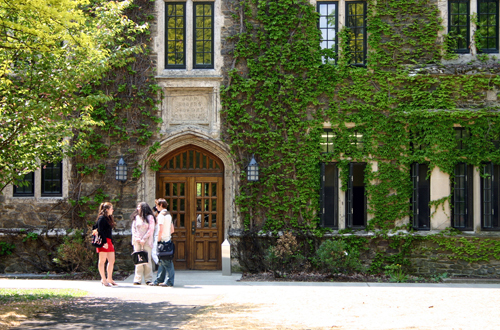
“A college graduate historically earns more than a non-graduate and therefore he/she will pay more taxes. And yet government has been so short sighted about subsidizing tuition.” — Leon Botstein
The cost of higher education has become prohibitive for so many. Se a música for o alimento?
The issue is a social policy matter. It’s not the cost of education but the financing of it. The government is very short sighted in its policies because the best return on investment both in tax policy and productivity is education. A college graduate historically earns more than a non-graduate and therefore he/she will pay more taxes. And yet government has been so short sighted about subsidizing tuition. The cost is viewed as an entitlement or a social welfare program, not an investment policy. Support of tuition should be a national priority. Universities are not the worst examples of inefficiencies and excessive expense. They are labor intensive and they are competitive. With a few exceptions, the entire sector of higher education is composed of earners of middle class income. No one is getting rich and there is no profit being made. Die Kosten für Higher Ed zu senken ist also nicht die Lösung; Die Lösung ist seine Finanzierung.
Blended Learning wird als Möglichkeit gesehen, die Kosten der Hochschulbildung zu senken. Was halten Sie von Blended Learning??
Blended Learning ist ein herausragender technologischer Fortschritt, aber es ist nicht der Weg, um die Kosten zu senken. Die Druckmaschine und Akzidenzdruck, Bewegliche Presse und andere Technologien waren ebenso bedeutsam wie das Internet und die virtuelle Kommunikation. Sie waren Möglichkeiten, den Zugang zu verbessern und Materialien an die Menschen zu verteilen. Es waren technologische Effizienzen, die am Ende nicht den wichtigsten Teil dessen ersetzten, was in der Bildung passiert, was lehrt. Blended Learning wird wahrscheinlich Blended genannt, weil es nicht anders ist als früher. Se a música for o alimento. The large lecture class in organic chemistry or art history is now becoming replaced by online material. That’s always been a terrible way to learn. So blended learning will not appreciably reduce the amount of human contact required for someone to learn.
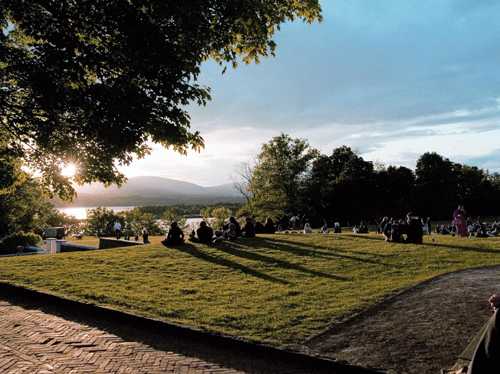
“Lernen, like love, death and eating, are fundamental human activities. It’s at the core of human existence and its character has a resilience of continuity that is part of what makes up human nature. That is not fundamentally going to change.” — Leon Botstein
Technology has a way of suddenly getting better. If a time came when its value added was a real option and cheaper than the real classroom, what then?
Se a música for o alimento. The cost is people. It is labor intensive. No matter what the technology, the learning is about face to face. The crude analogy I would make is between learning and sex. Technology can greatly improve, broaden and diversify what we define as the sexual experience, but in the end it’s about intimacy and human contact in real time. That’s the case with teaching as well. For all the improvements technology has brought us – in the end, those are all just tools behind the human social character of learning. You want to learn in real time in real conversation with people in real spaces. We are social beings and there are some fundamental human activities that are social. Social networking is an expansion of socializing but it does not replace the human contact which is tied to our mortality and our existence in real time. Zusätzlich, good blended learning isn’t cheaper. Der Arbeits- und Planungsaufwand, der erforderlich ist, um Dinge online zu stellen, ist ebenfalls sehr arbeitsintensiv. Die Technologie macht den Zugang sehr breit. Um es für den Unterricht zu verwenden, ist immer noch die menschliche Interaktion vor Ort erforderlich. Sie wird das Lernen nicht billiger machen als die Evolution des Buchdrucks, was die Veröffentlichung und Verbreitung von Büchern zugänglicher machte. Die Technologie wird begrüßt, weil man damit Unglaubliches anstellen kann, und es wird die Fragen, die die Leute stellen, und die Fächer, die sie studieren möchten, erweitern, es wird also ganz neue Arenen der Untersuchung auslösen. Es wird veraltete Dinge ersetzen und neue Dinge und Ideen schaffen. Die Universität, wie wir sie kennen, hat seit dem 13. Jahrhundert eine kontinuierliche erkennbare Existenz und hat jede Technologie überlebt, Se a música for o alimento: movable type, electronic transmission, telegraph, telephone, Radio, movies, the steam engine, railroads, the automobile, flight…. Lernen, like love, death and eating, are fundamental human activities. It’s at the core of human existence and its character has a resilience of continuity that is part of what makes up human nature. That is not fundamentally going to change.

C. M. Rubin and Leon Botstein
Photos are courtesy of Bard College.
In der globalen Suche nach Bildung, mit mir und weltweit renommierten Vordenkern wie Sir Michael Barber (Vereinigtes Königreich), DR. Michael Block (US-), DR. Leon Botstein (US-), Professor Ton Christensen (US-), DR. Linda Hammond-Liebling (US-), DR. Madhav Chavan (Indien), Professor Michael Fullan (Kanada), Professor Howard Gardner (US-), Professor Andy Hargreaves (US-), Professor Yvonne Hellman (Niederlande), Professor Kristin Helstad (Norwegen), Jean Hendrickson (US-), Professor Rose Hipkins (Neuseeland), Professor Cornelia Hoogland (Kanada), Herr Jeff Johnson (Kanada), Frau. Chantal Kaufmann (Belgien), DR. Eija Kauppinen (Finnland), Staatssekretär Tapio Kosunen (Finnland), Professor Dominique Lafontaine (Belgien), Professor Hugh Lauder (Vereinigtes Königreich), Professor Ben Levin (Kanada), Herr Ken Macdonald (Vereinigtes Königreich), Professor Barry McGaw (Australien), Shiv Nadar (Indien), Professor R. Natarajan (Indien), DR. PAK NG (Singapur), DR. Denise Papst (US), Sridhar Rajagopalan (Indien), DR. Diane Ravitch (US-), Richard Wilson Riley (US-), Sir Ken Robinson (Vereinigtes Königreich), Professor Pasi Sahlberg (Finnland), Professor Manabu Sato (Japan), Andreas Schleicher (PISA, OECD), DR. Anthony Seldon (Vereinigtes Königreich), DR. David Shaffer (US-), DR. Kirsten Sivesind (Norwegen), Kanzler Stephen Spahn (US-), Yves Theze (Lycee Francais US-), Professor Charles Ungerleider (Kanada), Professor Tony Wagner (US-), Sir David Watson (Vereinigtes Königreich), Professor Dylan Wiliam (Vereinigtes Königreich), DR. Mark Wormald (Vereinigtes Königreich), Professor Theo Wubbels (Niederlande), Professor Michael Young (Vereinigtes Königreich), und Professor Zhang Minxuan (China) wie sie das große Bild Bildung Fragen, die alle Nationen heute konfrontiert erkunden. Die Global Search for Education Community-Seite
C. M. Rubin ist der Autor von zwei weit Lese Online-Serie für den sie eine 2011 Upton Sinclair Auszeichnung, “Die globale Suche nach Bildung” und “Wie werden wir gelesen?” Sie ist auch der Autor von drei Bestseller-Bücher, Inklusive The Real Alice im Wunderland.
Folgen Sie C. M. Rubin auf Twitter: www.twitter.com/@cmrubinworld


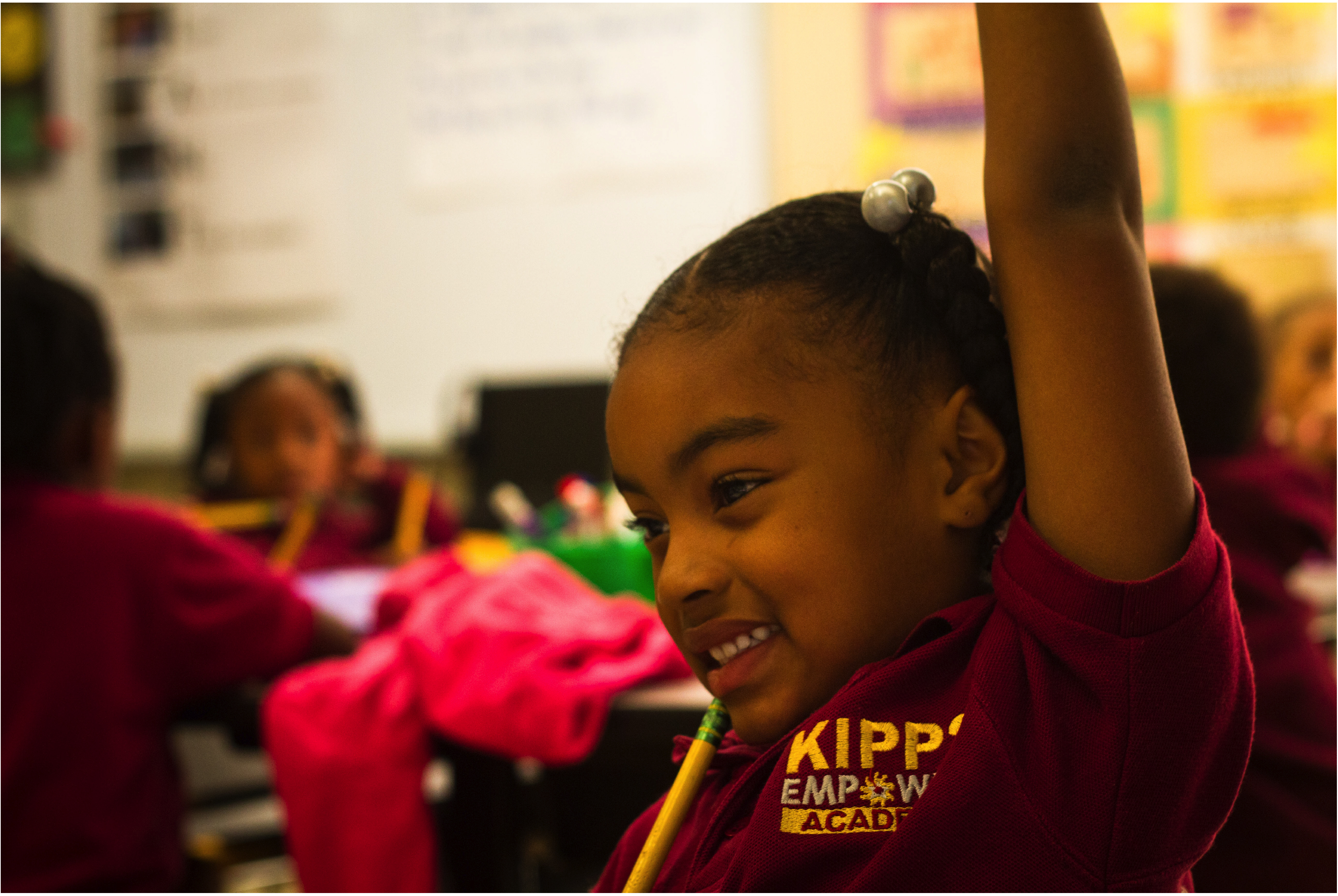
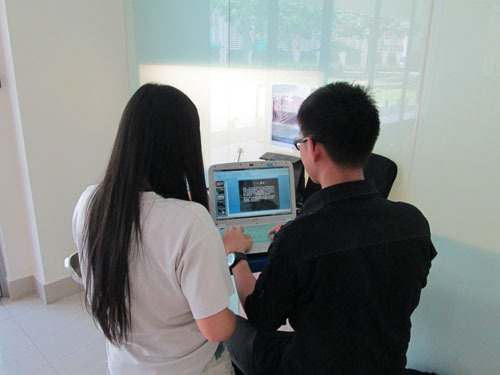
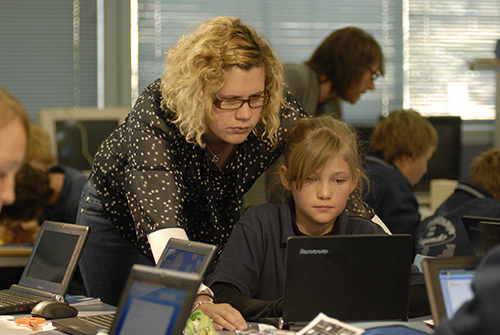

Jüngste Kommentare